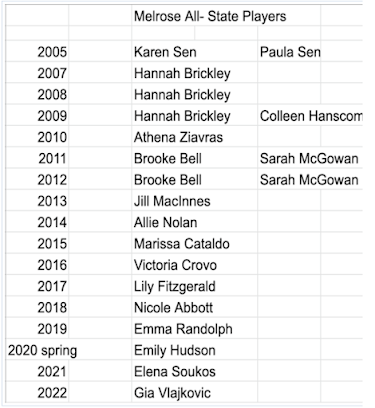All opinions expressed within are solely mine. They do not reflect those of the City of Melrose, Melrose School or Athletic Department. Don't blame them.
To see a world in a grain of sand, and a heav'n in a wild flower. Hold infinity in the palm of your hand, And eternity in an hour. - William Blake
Independent film director Mira Nair says that to do her job well she needs, "the soul of a poet and the hide of an elephant." That fits the job description of coaches, too.
What belongs for coaching with each analogy?
The Soul of a Poet
Poets communicate and evoke emotional responses. So do coaches. Poets use imagination to shape their vision. So do coaches. It takes time for poets to develop their craft and engage a following. As does coaching.
The Hide of an Elephant
If you put yourself out there as a teacher, writer, or coach, others will push back against your tone, content, and context.
Missouri Senator Thomas Hart Benton literally brushed his skin regularly with a horsehair brush to achieve a leathery quality.
Sometimes people form opinions to generate controversy or to challenge conventional wisdom. Copernicus postulated the sun at the center of the universe with planets orbiting it. Colleagues lambasted Semmelweis for his germ theory of handwashing to reduce infections. Few accepted three-point shooting theories of Mike D'Antoni. If you want to be publicly different, get thicker skin.
Every new idea isn't correct either. Neville Chamberlain's policy of appeasement of Hitler turned out fatally flawed. British researcher Andrew Wakefield manipulated data showing the immunization caused autism. He had his medical degree stripped and continues to spread disinformation. We still aren't sure about how many planets exist in the Solar System.
Bottom line, if you want to coach, or write, finding critics won't be difficult. Or as I remind people, "don't beat yourself up, there will always be someone around to do it for you."
An AI Take:
The soul of a poet is a complex and elusive concept, as it encompasses many different qualities and characteristics that poets possess. At its core, the soul of a poet is a deep sensitivity and a profound appreciation for the beauty of the world around them.
Poets have a unique ability to see beyond the surface level of things and to find meaning in the smallest of details. They are often deeply introspective, and their work is an expression of their innermost thoughts and emotions. The soul of a poet is therefore deeply connected to their creative process, which involves a constant exploration of their own inner world and an ongoing quest to understand the world around them.
The soul of a poet is also marked by a deep sense of empathy and compassion. Poets have a unique ability to connect with others on a deep emotional level, and their work often reflects a profound understanding of the human condition. They are often driven by a desire to communicate important truths about the world and to help others to see things from a new perspective.
Finally, the soul of a poet is marked by a deep commitment to their craft. Poets are often driven by a deep sense of purpose and a desire to create something meaningful and lasting. They are willing to put in the time and effort required to hone their skills and to perfect their craft, and they are constantly striving to improve their work.
Overall, the soul of a poet is a multifaceted and complex concept that encompasses many different qualities and characteristics. At its core, it is marked by a deep sensitivity, a profound appreciation for the beauty of the world, a strong sense of empathy and compassion, and a deep commitment to the craft of poetry.
Lagniappe.
Lagniappe 2. Build athleticism. This guy has big ups.







